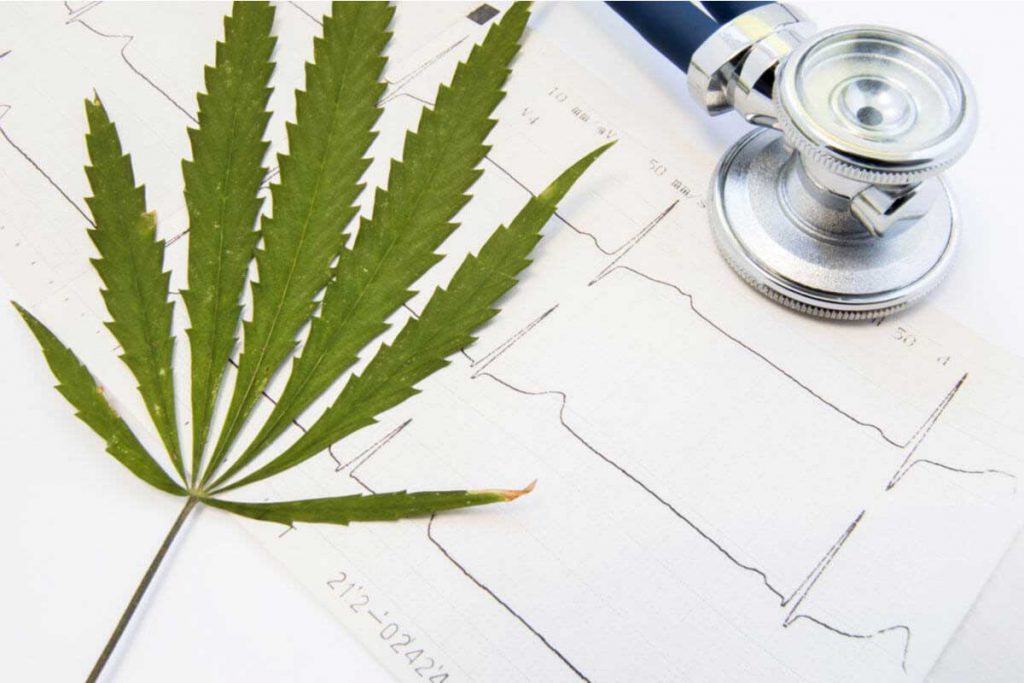

However, cannabis is not totally free from adverse effects as it can cause dry eyes, cottonmouth, drowsiness, headaches, dizziness, increased anxiety, or even paranoia. Does marijuana increase heart rate? Unfortunately, that is one of the things you will likely experience when you consume weed. The feeling is like you’re too nervous about something, and your heart is beating faster than it should.
Cannabis contains a chemical compound known as THC. When it binds with the CB1 and CB2 receptors, it will affect many of the biological systems, especially your heart. The interaction between the receptors and THC will cause the heart to work faster and harder. Likewise, your blood vessels will dilate.
THC can also work on its own when it penetrates your endocannabinoid system and cause an impact over the transient receptor ankyrin type-1 network that will lead to continuous vasodilatory effects. Under normal cases, a healthy individual has a latent heart rate of between 60 and 100 beats/minute. When he smoked cannabis, the normal heart rate will escalate from 20 to 100 percent. His heart will continue working harder and faster in the next two to three hours.
Until today, no one knows why cannabis makes the heart pump faster. The scientists, however, assume that it is the effect of too much vasodilation. When vasodilation occurs, the blood vessels dilate and become wider, so the blood pressure will drop. To keep the blood pressure normal and combat any other negative effects, the heart will pump faster. The medical experts call it reflex tachycardia. Since the blood vessels dilated and the blood pressure drops, the person will feel dizzy and will likely collapse after he smoked weed.
Good thing, these effects will go away quickly. Also, they will be less likely to occur once you become THC-tolerant. Studies show that regular cannabis users or those who smoke 6 times or more every week are less susceptible to these negative effects. These people might have slightly lower than the average heart rate and improved blood volume. Likewise, their circulatory systems could be less affected as they exercise regularly. It is the result of increased activity that occurs within their parasympathetic nervous system that is related to resting and relaxation.
Marijuana exerts the majority of its effects by dealing with the endocannabinoid system. It is a network of cell receptors called cannabinoid receptors and compounds that are known as endocannabinoids.
The cannabinoid receptors are named CB1 and CB2 that can be found all over the human body. They play a big role in various physiological functions. When the endocannabinoids and cannabinoid receptors interact with each other, the process is sure to cause different reactions within the human body.
The endocannabinoid system is associated with many things like your movement, appetite, and mood. On the other hand, to maintain homeostasis is among its more important roles. Homeostasis is the state of persistent internal balance within the erratic external environment.
Maintaining homeostasis calls for repeated monitoring and adjustment of the factors, such as blood pressure and body temperature. Thus, it is no longer surprising that researchers have found endocannabinoids in the heart tissues.
Moreover, the endocannabinoid seems to have a critical role in managing blood pressure, stimulating the blood vessels to relax, dilate, and widen. Furthermore, it affects heart rate, and it is where marijuana enters the scene. The marijuana plant produces hundreds of chemicals that can affect your body in many ways.
THC is the most prominent and the one that causes the intoxicating effects of cannabis. This compound will dramatically affect your body since it comes with the same chemical form as the natural endocannabinoids.
No one can deny that cannabis can harm your cardiovascular system. But it can also give some potential benefits to your heart. Aside from THC, marijuana also contains other chemical compounds like CBD that has been highly regarded for its anti-inflammatory properties.
CBD interacts with the CB2 receptors to reduce the inflammatory reaction. Inflammation is typically one of the factors that contribute to heart disease. Hence, reducing it can help in prevention.
Studies also showed that CBD might help in dealing with the addictive behavior associated with alcohol and cigarette smoking. The latter is among the major risk factors for heart diseases, so quitting can have some benefits.
Of course, there’s some evidence that confirms the ability of weed to benefit people who suffer diabetes and obesity. Those two health problems are often connected to heart disease and chronic inflammation.
With all these things, it is wrong to assume that cannabis is not doing any good for the heart. However, even if it looks beneficial, you should still seek help from your doctor before taking cannabis, especially if you have a heart condition and any related risk factors.
Cannabis can affect many different systems within the human body as soon as the cannabinoids it contains interact with the endocannabinoid system. One of its common side effects is increased heart rate and lowered blood pressure. On the contrary, these effects are less significant once your body got its way to become tolerant to the psychoactive cannabinoid -THC.
Does marijuana increase your heart rate? It happens. Noticing your heart is beating fast can be horrible, especially when you smoked cannabis and got high. The experience can even be more troublesome when it happens unexpectedly, and cannabis hit you surprisingly. Just remember one thing: cannabis can make you anxious in case you take it in a higher dose. Anxiety is not a good thing as it can contribute to signs like pounding or racing heart and palpitation.
Hence, you can decrease the chances of experiencing those side effects if you take cannabis at a minimal dose. That is the more important thing to do, especially if you’re a novice user. Begin with the least dose and gradually increase it in the long run until you get a suitable level for you.
Important Links
Subscribe and Get 10% Off
Connect With Us